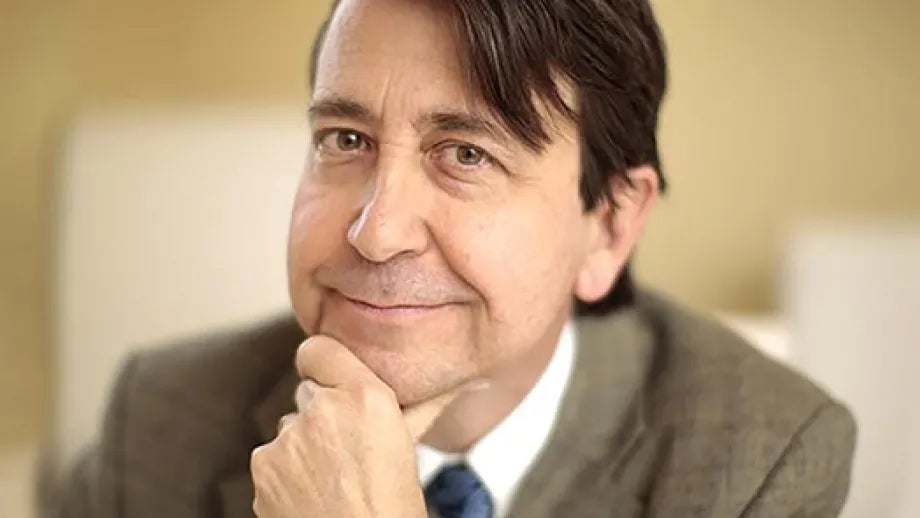New Book Adds to Former MTC Staffer's Global Legacy
Former MTC staff member Hank Dittmar's DIY City: The Collective Power of Small Actions, posthumously published this summer by Island Press, reinforces Dittmar's influence on the fields of transportation, urban planning and global sustainability by sounding a note of caution about grandiose design schemes and emphasizing instead the big impacts that can be made by smaller adjustments to the urban fabric.
"Some utopian plans have shaped our cities," notes the publisher's webpage, "from England’s New Towns and Garden Cities to the Haussmann plan for Paris and the L’Enfant plan for Washington, D.C. But these grand plans are the exception, and seldom turn out as envisioned by the utopian planner. Inviting city neighborhoods are more often works of improvisation on a small scale. This type of bottom-up development gives cities both their character and the ability to respond to sudden change.
Dittmar concluded that big plans were often the problem. Looking at the global cities of the world, he saw a crisis of success, with gentrification and global capital driving up home prices in some cities, while others decayed for lack of investment. Hank Dittmar, urban planner, friend of artists and creatives, sometime rancher, 'high priest of town planning' to the Prince of Wales, believed in letting small things happen."
Dittmar, who died in 2018 at age 62, made his mark at MTC in the 1980s and early 1990s before going on to increasingly visible and far-reaching positions across the U.S. and around the world.
During Dittmar's time at the helm of MTC’s legislative advocacy put him on the front line of efforts to craft the federal Intermodal Surface Transportation Efficiency Act of 1991, which re-engineered federal transportation policy for the post-Interstate Highway System era. Known as ISTEA, the landmark bill gave metropolitan planning organizations like MTC considerable new funding and new powers to shape their urban environments. MTC's longtime Washington lobbyist, Tom Bulger, summed up Dittmar’s abilities and contributions with one word: “Phenomenal.”
“I think he had the most vision of anyone I’ve ever known,” Bulger said. “He was a visionary who was able to overcome obstacles and challenges, and come up with the most incredible solutions to advance transportation policy in the Bay Area.”
With that federal advocacy experience under his belt, Dittmar then moved on to the position of executive director of the Washington, D.C.-area-based Surface Transportation Policy Project, where from 1993 to 1998 he spearheaded a national coalition and campaign to promote more sustainable transportation — walking, cycling and public transport — and encourage planning of walkable cities and towns.
Perhaps Dittmar’s most prominent role was as chief executive from 2005 to 2013 of The Prince’s Foundation for Building Community in the UK (named for Prince Charles, and now known as The Prince’s Foundation), which works to create community by building sustainable housing, regenerating neighborhoods, developing family attractions and the like. Prior to joining the Prince's Foundation, Dittmar in the early 2000s was founding president and CEO of Reconnecting America, which advised civic leaders on community development. He also served from 2003 to 2008 as chairman of the Congress for the New Urbanism, an international nonprofit membership organization that promotes the creation and restoration of compact, walkable, mixed-use cities.
A prolific writer, Dittmar in 2013 began contributing columns to London-based Building Design magazine. His last opinion piece for the magazine, published on March 20, 2018, was titled “When it comes to street design, we’re not there yet.” "Other topics visited by Dittmar," the magazine noted in a subsequent obituary, "included the need to break the stranglehold of the big house builders on housing delivery to improve quality, the need for more affordable homes and mixed communities, and the shortcomings of the planning system.” Dittmar also authored the 2008 book Transport and Neighbourhoods (Edge Futures/Black Dog, 2008), and served as co-author and editor of New Transit Town – Best Practices in Transit-Oriented Development (Island Press, 2003).
In DIY City, Island Press states, "Dittmar explains why individual initiative, small-scale business, and small development matter, using lively stories from his own experience and examples from recent history, such as the revival of Camden Lock in London and the nascent rebirth of Detroit. DIY City is a timely response to the challenges many cities face today, with a short supply of affordable housing, continued gentrification, and offshore investment. Dittmar’s answer to this crisis is to make Do-It-Yourself the norm rather than the exception by removing the barriers to small-scale building and local business. The message of DIY City can offer hope to anyone who cares about cities."


Submit your comment
In order to receive a reply to your comment, please provide an email address.